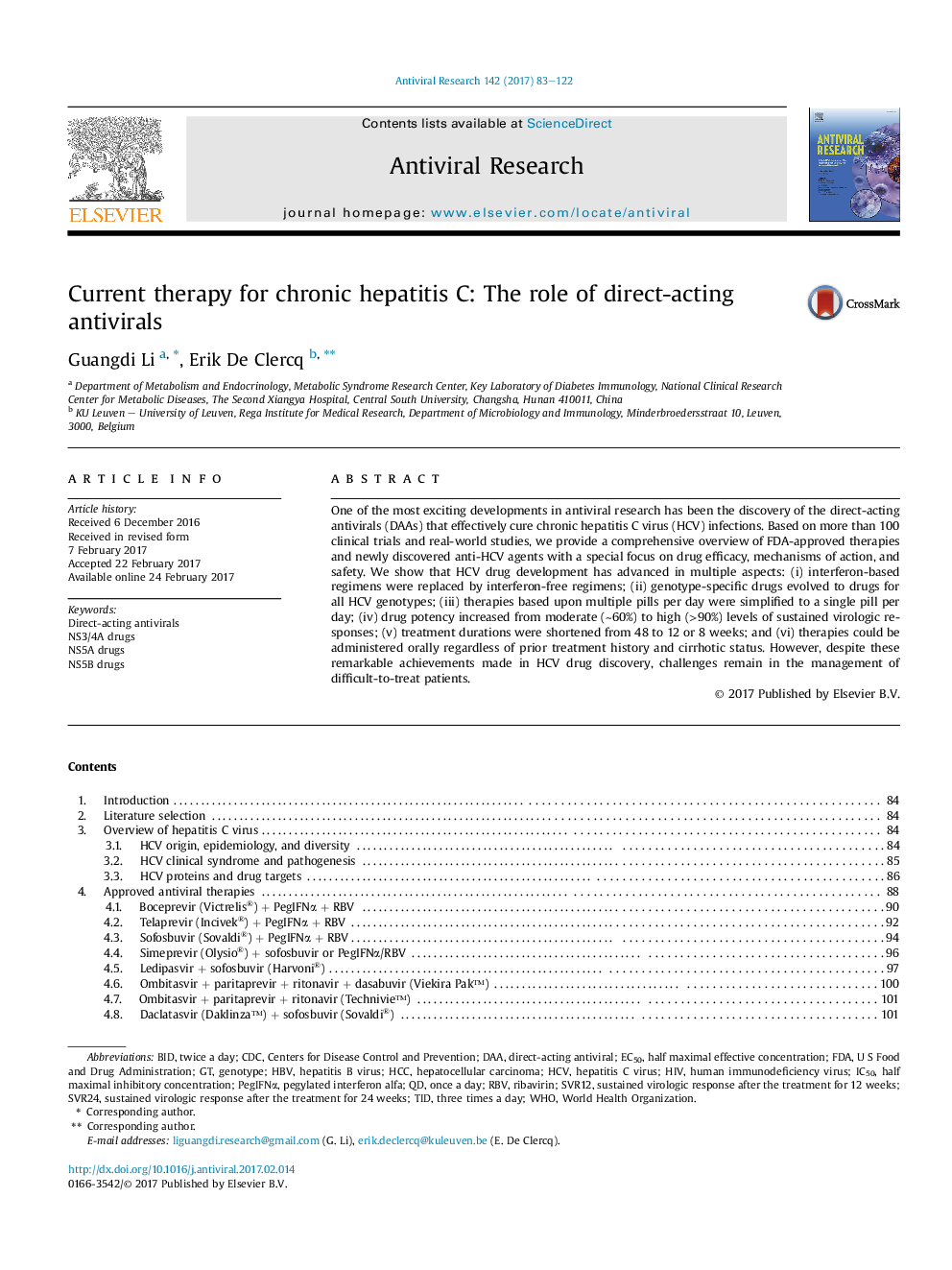| Article ID | Journal | Published Year | Pages | File Type |
|---|---|---|---|---|
| 5551744 | Antiviral Research | 2017 | 40 Pages |
â¢HCV genotype-specific drugs evolve to pan-genotypic drugs.â¢Drug potency increases from moderate (â¼60%) to high (>90%) levels of sustained virologic response.â¢Treatment durations are shortened from a 48-week to 12-week or 8-week period.â¢HCV therapies based upon multiple pills per day are simplified to a single pill per day.â¢HCV therapies are administered orally regardless of prior treatment history and cirrhotic status.
One of the most exciting developments in antiviral research has been the discovery of the direct-acting antivirals (DAAs) that effectively cure chronic hepatitis C virus (HCV) infections. Based on more than 100 clinical trials and real-world studies, we provide a comprehensive overview of FDA-approved therapies and newly discovered anti-HCV agents with a special focus on drug efficacy, mechanisms of action, and safety. We show that HCV drug development has advanced in multiple aspects: (i) interferon-based regimens were replaced by interferon-free regimens; (ii) genotype-specific drugs evolved to drugs for all HCV genotypes; (iii) therapies based upon multiple pills per day were simplified to a single pill per day; (iv) drug potency increased from moderate (â¼60%) to high (>90%) levels of sustained virologic responses; (v) treatment durations were shortened from 48 to 12 or 8 weeks; and (vi) therapies could be administered orally regardless of prior treatment history and cirrhotic status. However, despite these remarkable achievements made in HCV drug discovery, challenges remain in the management of difficult-to-treat patients.
